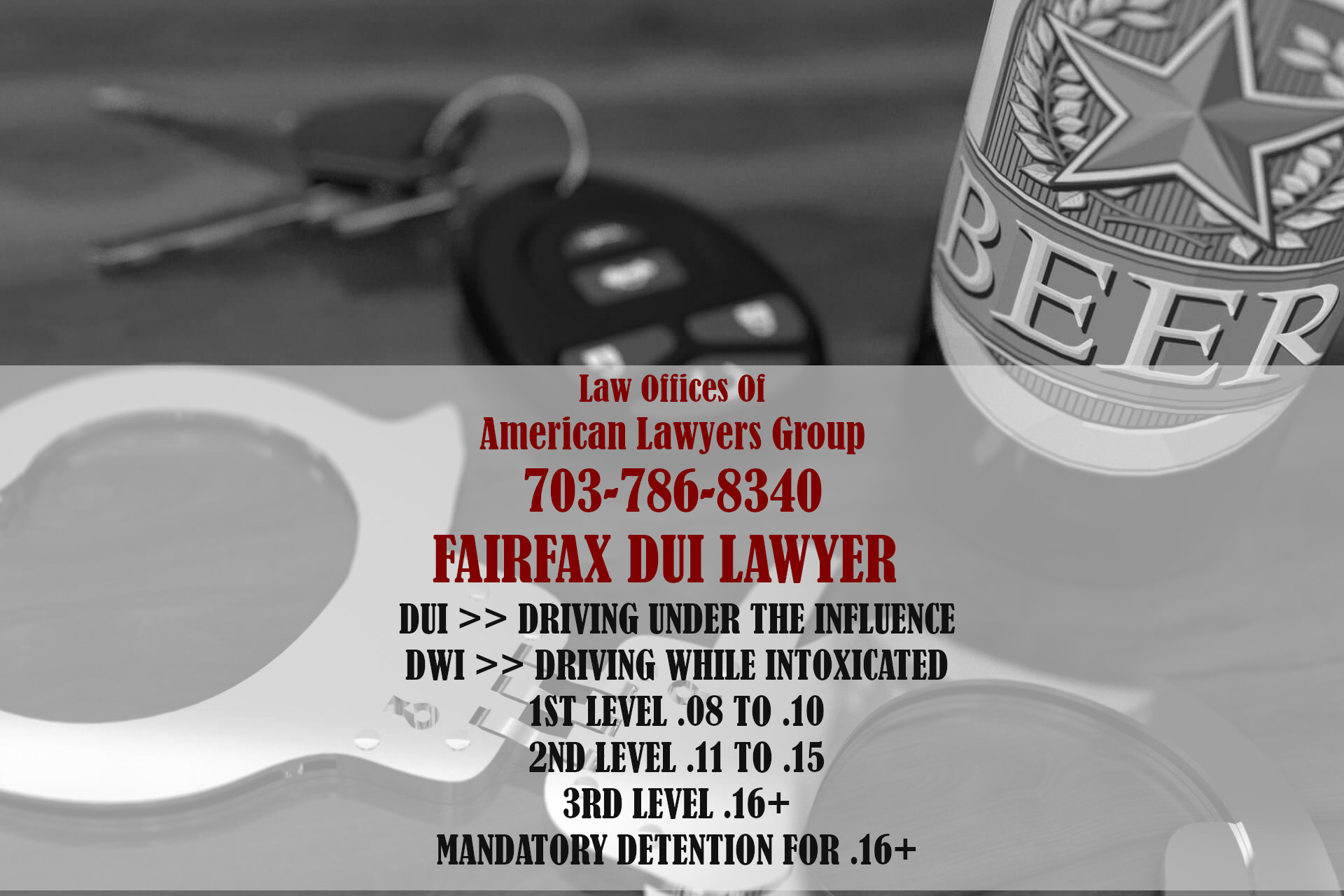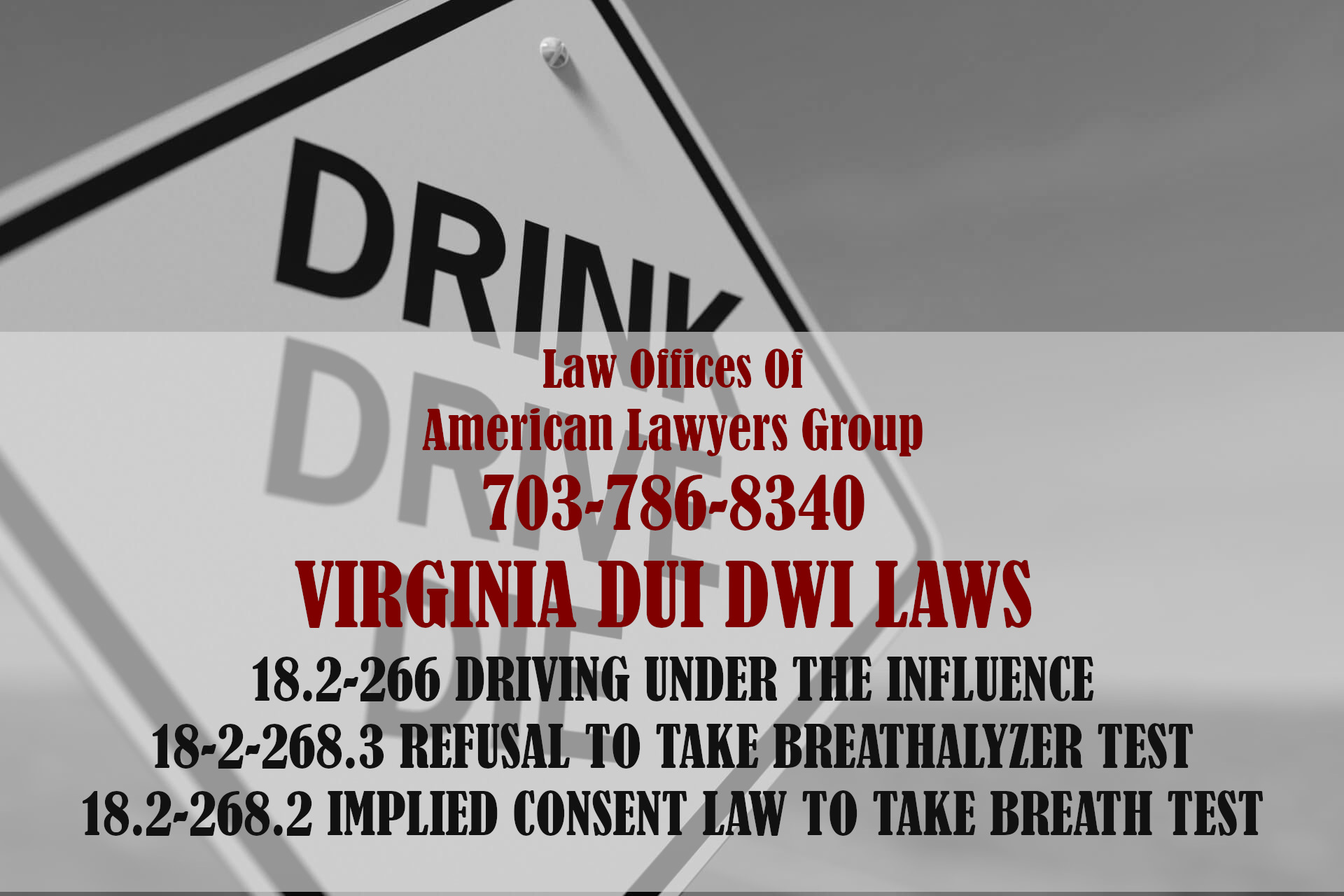VIRGINIA DUI LAWYER
Let us fight your DUI / DWI violation in court. As a Virginia DUI lawyer, I have defended client’s rights in court and fought against suspension and detention due to their DUI’s.
read below how you can fight dui charges in court
Experienced Low-Cost Virginia DUI Lawyer

Call Now – FREE Consultation
Don’t Risk Losing Your License
Se Habla Espanol
What Is the Purpose of Field Sobriety Tests (FST) For A DUI in Virginia?
There are a number of individual field sobriety tests that a law enforcement officer might perform during a suspected DWI stop.
The National Highway Traffic Safety Administration has certified three of these actions as part of the Standardized Field Sobriety Test.
When performing these tests, the officer is trying to determine whether there is probable cause to arrest you for driving under the influence.
It is very important to hire the right DUI attorney in Virginia so that you have the best defense. In Virginia a DUI is charged under Virginia Law section 18.2-266.
| Offense | Criminal Classification | Minimum Jail Sentence | Maximum Jail Sentence | Maximum Fine | License Suspension |
|---|---|---|---|---|---|
| 1st DUI | Class 1 misdemeanor | Depends on BAC | 1 year | $2500 | 12 months |
| 2nd DUI in 10 years | Class 1 misdemeanor | 10 days | 1 year | $2500 | 36 months |
| 2nd DUI in 5 years | Class 1 misdemeanor | 20 days | 1 year | $2500 | 36 months |
| 3rd DUI in 10 years | Up to $250 | 90 days | 5 years | $2500 | 36 months |
| 3rd DUI in 5 years | Up to $250 | 180 days | 5 years | $2500 | 36 months |
What is a Horizontal Gaze Nystagmus (HGN) Test? As Explained by Virginia DUI Lawyer:
The first part of the Standardized Field Sobriety Test we are going to discuss is the HGN test.
This test is designed to detect any odd changes in your eyesight or impaired eye vision.
The officer will take a small flashlight or their finger and position it at eye level.

They will then move their finger or flashlight horizontally to test your eye’s reaction to the light and ability to follow the object.
The HGN will observe how smooth your eyes are at tracking the object from side to side.
What Is The Walk and Turn (WAT) Test?
The next test to discuss is the Walk and Turn Test. The WAT test involves walking nine steps in a straight line using the heel-to-toe method.
After completing the nine steps forward, you turn around and walk back in the same manner.
This test focuses on your ability to balance and comprehend instructions as alcohol often impairs these functions.
This test is often criticized for depending so heavily on the individual officer’s observations.
What is The One Leg Stand (OLS) test? Answered by Virginia DUI Lawyer
The final field sobriety test that is certified by the NHTSA is the one-leg stand test.
This test is both a balance and mental test to see if you can follow directions while maintaining your balance.

This test involves standing on one foot while counting and looking down at your foot.
Like the Walk and Turn Test, this test is controversial.
An average sober person may find this test just as difficult as an intoxicated person.
What Is the Finger to Nose Test?
The finger-to-nose test is another commonly used to check for sobriety. Because this is not on the NHTSA’s list, this test is often challenged during cross-examination of the officer.
This test requires you to be able to multitask between a physical and mental task.
The officer will instruct you to close your eyes and stand with your feet close together.
The officer will then ask you to alternate touching your nose with your index finger.
The officer is trying to determine whether you can remain still, balanced, and can follow the directions correctly.
What is The Alphabet Test?
Finally, we should discuss the alphabet test. Like the finger-to-nose test, the alphabet test is not certified by the NHTSA. The officer will ask you to recite a part of the alphabet, starting from one letter and ending at another.
The officer is looking for signs of slurring your words, your ability to follow directions, and your memory.
There is a lot of controversy over the credibility of this test since there is no standard on how to conduct the test.
Also, factors such as a language barrier, anxiety, or an incomplete education can impact your ability to successfully pass this test.

What Happens If This Is Your First Time Getting a DUI in Virginia?
The first DWI/DUI offense is a class 1 misdemeanor in Virginia, punishable by up to one year in jail, suspension of your privileges to drive for twelve months, and a fine up to $2500.
Additionally, upon arrest, your license will be administratively suspended for seven days.
If you are convicted, your blood alcohol content (BAC) will determine whether you have a mandatory minimum jail sentence.
If your blood alcohol concentration is 0.15 to 0.20, you are facing a mandatory jail sentence of five days.
If your blood alcohol concentration is over 0.20, then your mandatory minimum of jail time is ten days.
Your privilege to drive in Virginia will be suspended for 12 months and you must enroll in the Virginia Alcohol Safety Action Program (ASAP) and comply with all their requirements.
The Virginia statute requires you to install an ignition interlock in your car for at least six months as a condition to get a restricted license.
What is the Ignition Interlock Device? Explained by Virginia DWI Lawyer
An ignition interlock device is a court-mandated breathalyzer that is installed in your car.
If the device calculates your BAC as exceeding .02 it will prevent the car from starting.
It is up to the discretion of the judge to determine how long this will need to be installed, but typically it is up to six months.
What Happens if I Have Multiple Convictions of DWI?
If you are convicted of:
– A second DWI committed within five years of the first offense: Mandatory minimum jail sentence of twenty days (but up to a year) and a minimum fine of $500.
Your privileges to drive are suspended for three years
– A second DWI committed within ten years of the first offense: Mandatory minimum jail sentence of ten days (but up to a year) and a minimum fine of $500.
Your privileges to drive are suspended for three years, but you can apply for a restricted license after four months of your conviction.
In addition to the mandatory jail time mentioned above, if the alcohol level is 0.15 to 0.20, then there will be an additional ten days in jail.
If the alcohol level is 0.20 and more, then 20 days will be added to the mandatory sentence.
A third DWI committed within a ten-year period will be a class 6 felony that comes with a mandatory minimum sentence of ninety days in jail and a minimum fine of $1000.
A third or more DWI convictions will result in the revocation of your privileges to drive.
If the third DWI was committed within a five years period, then the mandatory minimum of jail time will be six months and the $1000 minimum fine.
A fourth DWI committed within ten years period of the first offense is a class 6 felony with one year mandatory jail time and a $1000 minimum fine.
How do I Get my License Reinstated After A DUI Charge In Virginia?
The reinstatement of your privileges to drive depends on how many DWI convictions you had.
For the first DWI conviction, you can reinstate your privileges to drive after 12 months.
For the second DWI conviction in five years or ten years, you can reinstate your privilege to drive after three years.
Experienced Low-Cost Virginia DUI Lawyer

Call Now – FREE Consultation
Don’t Risk Losing Your License
Se Habla Español
For the third or more DWI conviction, your privileges to drive are revoked indefinitely, and you have to petition the circuit court for reinstatement of your privileges to drive, and it is in the Judge’s discretion to grant a restoration of your privileges to drive or not.
In all cases, to reinstate your privileges to drive, you have to do the following:
– Full payment of all fines and court costs
– Payment of reinstatement fees to DMV
– Completion of the Alcohol Safety Program and all related treatments
– Installation of the ignition interlock device
Your attorney will guide you on what you need to do to reinstate your privileges to drive in Virginia.

